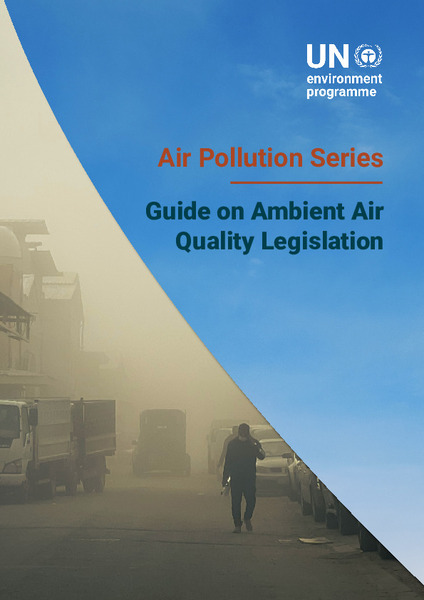Guide on Ambient Air Quality Legislation - Air Pollution Series

Date
2023-05Author
United Nations Environment Programme
Citation Tool
Bibliographic Managers
RT Generic T1 Guide on Ambient Air Quality Legislation - Air Pollution Series A1 United Nations Environment Programme YR 2023-05 LK https://wedocs.unep.org/20.500.11822/42536 PB AB TY - GEN T1 - Guide on Ambient Air Quality Legislation - Air Pollution Series AU - United Nations Environment Programme Y1 - 2023-05 UR - https://wedocs.unep.org/20.500.11822/42536 PB - AB - @misc{20.500.11822_42536 author = {United Nations Environment Programme}, title = {Guide on Ambient Air Quality Legislation - Air Pollution Series}, year = {2023-05}, abstract = {}, url = {https://wedocs.unep.org/20.500.11822/42536} } @misc{20.500.11822_42536 author = {United Nations Environment Programme}, title = {Guide on Ambient Air Quality Legislation - Air Pollution Series}, year = {2023-05}, abstract = {}, url = {https://wedocs.unep.org/20.500.11822/42536} } TY - GEN T1 - Guide on Ambient Air Quality Legislation - Air Pollution Series AU - United Nations Environment Programme UR - https://wedocs.unep.org/20.500.11822/42536 PB - AB -Item Statistics
Display item statisticsMetadata
Show full item recordDescription
Embedding ambient air quality standards (AAQS) in legislation is an important foundation for effective national air quality governance. Legislation can establish institutional responsibility for air quality standards, set mechanisms for accountability, public participation and enforcement, and institutionalize processes for setting and updating robust air quality standards as knowledge and technologies develop. UNEP’s 2021 Regulating Air Quality: The First Global Assessment of Air Pollution Legislation found that, while most countries in the world do embed AAQS in legislation, there was no common legal framework for AAQS globally. UNEP has developed this Guide on Ambient Air Quality Legislation to assist national lawmakers and policymakers to develop or improve ambient air quality legislation. The aim of this Guide is to promote robust national systems of air quality governance that prioritize public health outcomes and respect that all humans share the same need to breathe air of adequate quality. The Guide emphasizes that air pollution is a collective problem arising from decisions and behaviours across a wide range of policy sectors. Thus, regulatory alignment across wide-ranging policy areas is critical to achieving AAQS in practice. This Guide addresses a lacuna that exists in air quality laws globally, providing a legal resource for developing robust national legislation that supports public access to scientifically evidenced levels of clean air.
Document Viewer
To read more, scroll down below.

